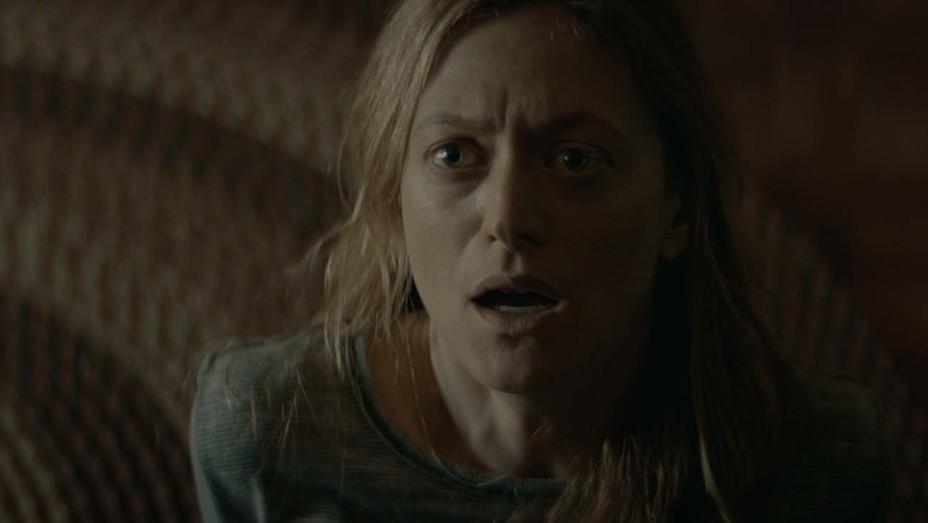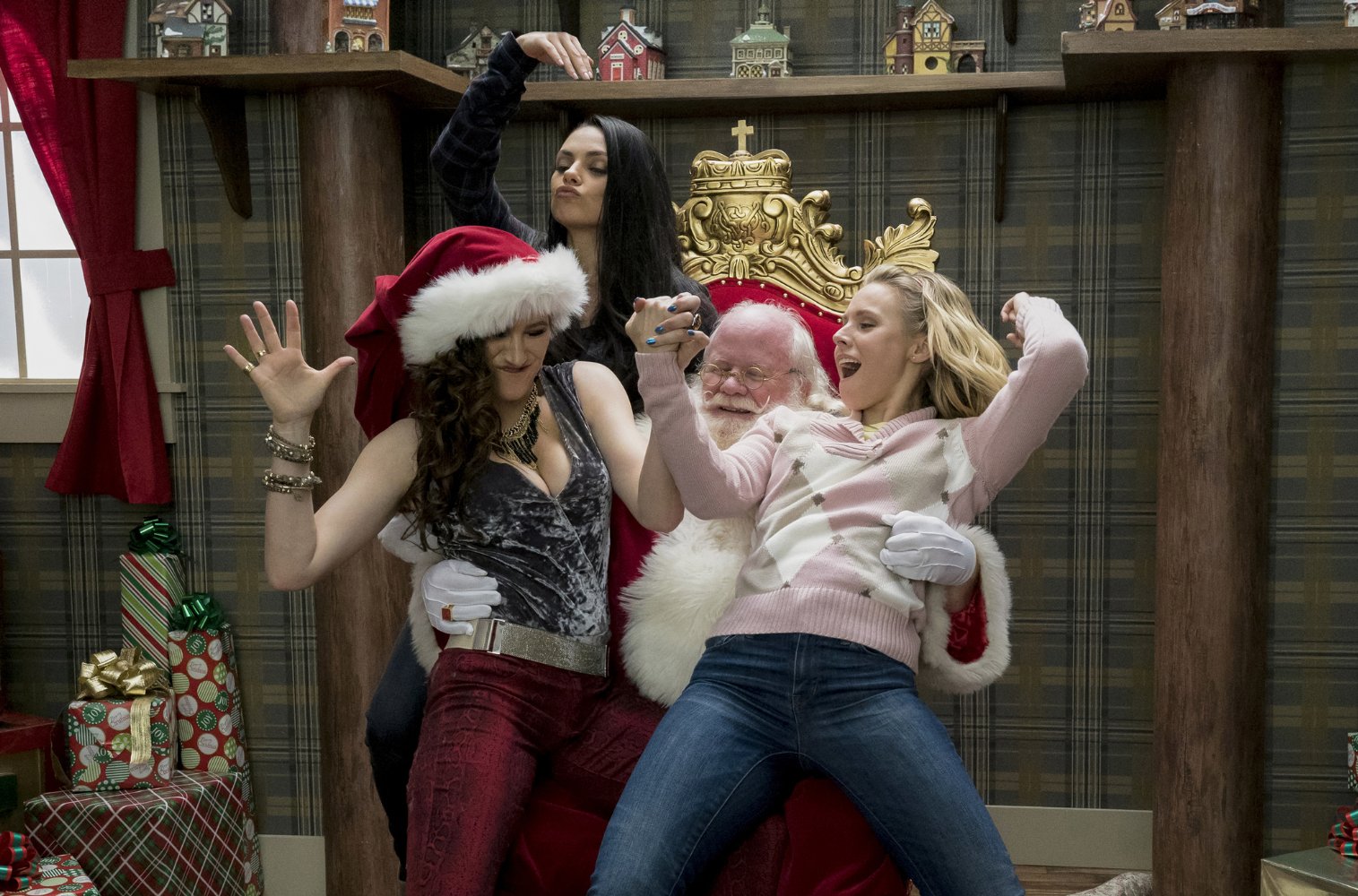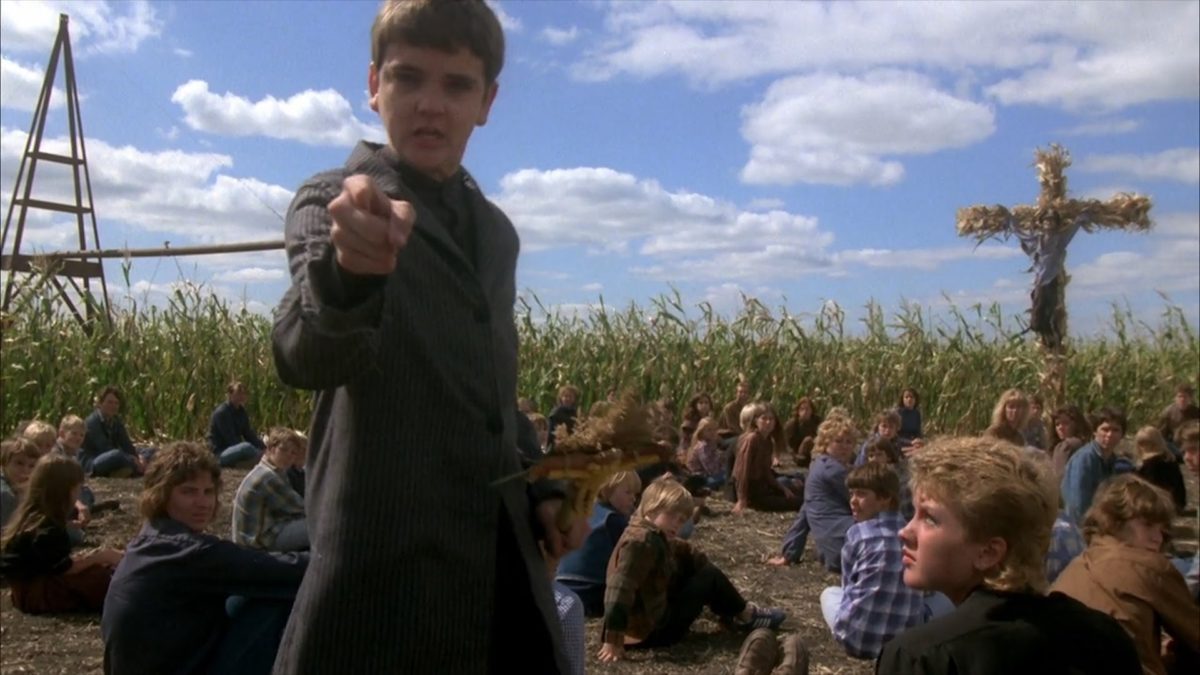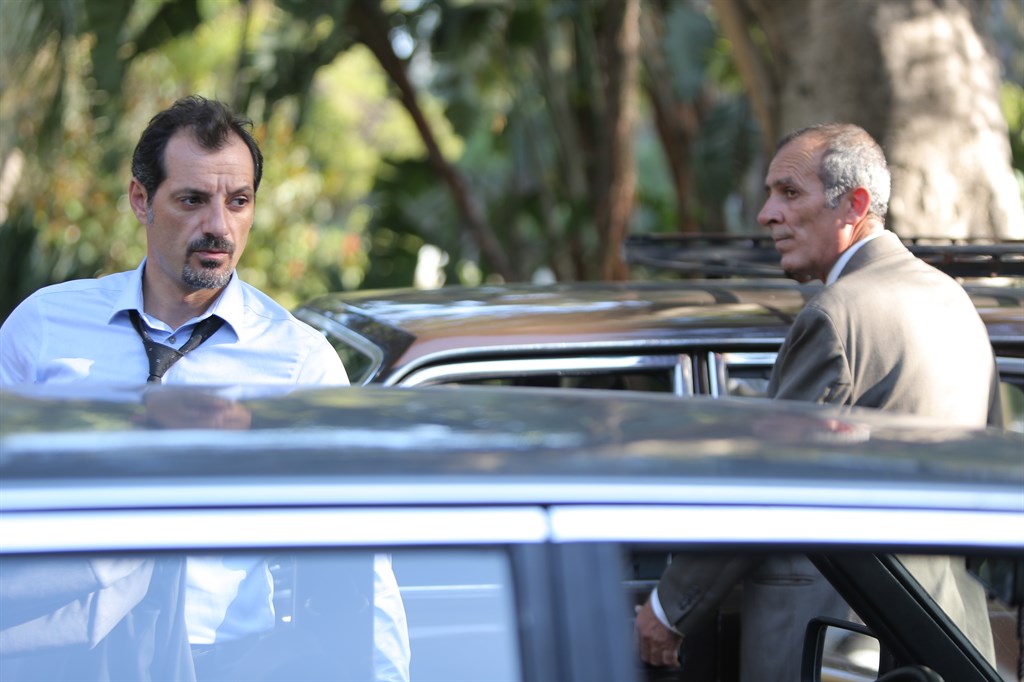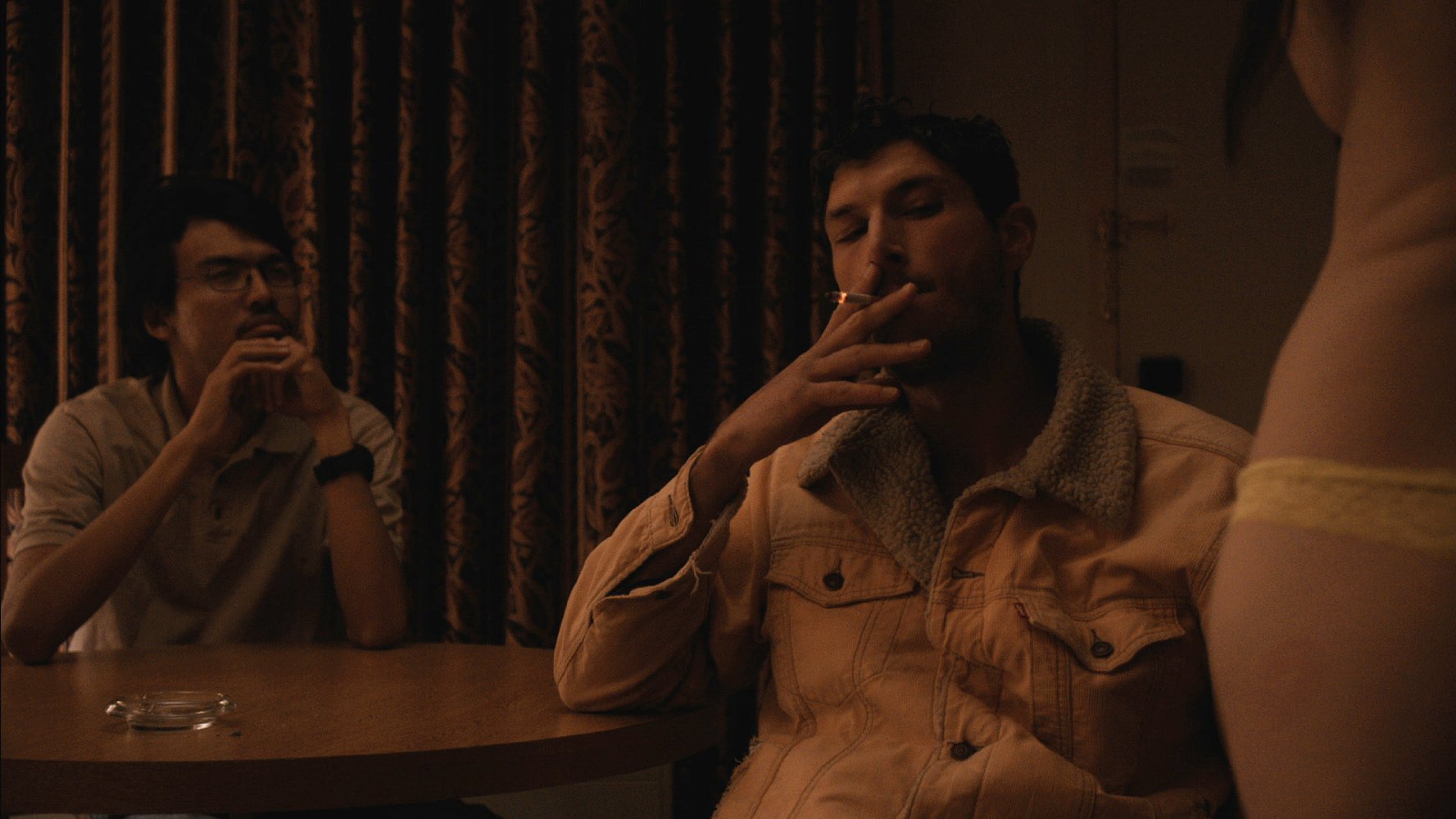In the space of grief and hopelessness, there are the bad things. Everything in every aspect becomes distorted into a gloomy snowball. It can feel like a four-walled room with no doors or windows. The Dark and the Wicked begins with an old married couple nestled away on a farm. The husband only named father (Michael Zagst) is ill and bedridden. His wife named mother (Julie Oliver-Touchstone) cares for him alone, and you can tell that the hopelessness of the situation has worn her down considerably. But they are not alone. There’s a slight hint that there is another malevolent force living in the house and feeding off that despair.
As their children, Louise (Marin Ireland) and Michael (Michael Abbott Jr.) arrive at the farm, there’s a sense that this family is not all that close. They briefly go over life events, and it’s explained that the last time Louise spoke to her mom was a call on her birthday. The at-home nurse (Lynn Andrews) explains to them that their mother had been talking to somebody that isn’t there. Even after something horrific happens, they don’t directly ask her. The movie’s basis and where the problems manifest is the lack of connectedness that these characters have for one another. From there, the opening for the devil to torment them becomes more prevalent as time goes on.
Director Bryan Bertino is well versed in building an atmosphere in limited physical space. Audiences saw that with 2010’s home invasion thriller The Strangers. Told with a space of a week, Bertino and cinematographer Tristan Nyby play with themes of escalation. When the demon is near, wolves collectively howl. As you get through the latter half of the week, objects and people become consumed by dark shades of shadows. The audience never knows whether the evil in the movie is physical or just a mental encasement. Mixed in, there are visions of ghosts and slight jump scares which you know, but are effective. The movie uses them in a way mixed with uncomfortable sounds and coupled with Tom Schraeder‘s score that gets under your skin.
While Bertino centers The Dark and the Wicked around one nuclear family, a couple of other characters visit. One of which is a priest (Xander Berkeley) which seems standard for an almost haunted house type film. What is different here is the demonic presence and how it manifests. While it feeds on the ailing father, it also becomes stronger with how depressing the house feels. Almost as if the house itself is another character sapping the life within it. While Louise and Michael just want to connect to some sense of normalcy, the presence plays upon that. You question if these visitors are actual people or just ways for the demon to further drive our principal characters to madness.
The heart of this story lies in the power of love and family. Children grow older. They have families and lives of their own. Eventually, they have to come face to face with their own parent’s mortality. Unfortunately, it seems like this family has a lack of awareness for each other. Michael is very distant towards his sister and is not willing to accept the surrounding things. Louise is trying her hardest, but the lack of a support system slowly eats away at her. It’s this emotional disconnect that allows the bad things to fester like a disease. Not only does the evil lie on the shoulders of an evil that chokes away the light (literally and figuratively) in a household. Also, that a family fell prey to the slings and arrows of distance.
Photo Credit: RLJE Films

